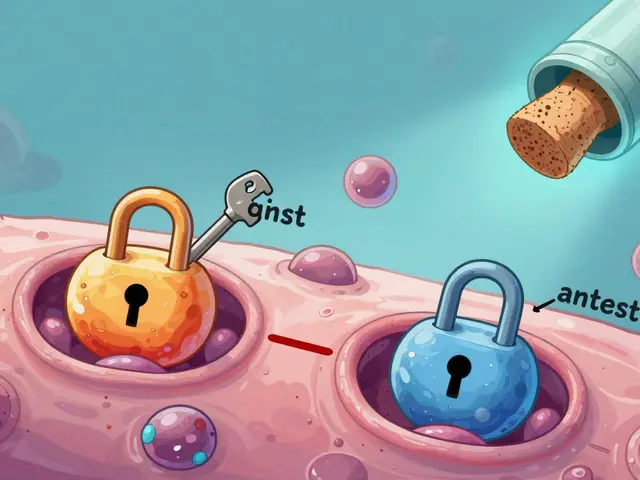Alchemilla (Lady's Mantle): uses, benefits and safety
Ever heard of alchemilla? People usually call it lady's mantle. It's a leafy herb used in traditional medicine for things like wound care, menstrual cramps, and mild digestive upset. If you're curious about how to use it safely or what it might actually help with, this guide gives clear, practical info without the fluff.
What alchemilla is and what it does
Alchemilla is a plant high in tannins and flavonoids. Those tannins give it astringent properties — meaning it can help shrink tissues and reduce minor bleeding or oozing when applied topically. The flavonoids act as mild antioxidants. People use alchemilla as a tea, tincture, or topical wash. Traditional uses include easing menstrual discomfort, helping small cuts heal faster, and calming mild diarrhea.
That doesn’t mean it’s a cure-all. Think of alchemilla as a supportive, gentle herb that can help with certain minor problems. For serious conditions, always see a healthcare professional.
How to use alchemilla — simple, practical tips
Tea: Use 1–2 teaspoons of dried herb per cup of boiling water. Steep 10–15 minutes, then strain. Drink up to 2–3 cups a day for short periods. This is the most common way people take alchemilla for menstrual or mild digestive issues.
Tincture: If you buy a standardized tincture, a common dose is 1–2 ml (about 20–40 drops) two to three times daily. Follow the product label. Tinctures are stronger than tea and act faster.
Topical: For minor cuts or skin irritation, make a cooled tea and use it as a compress or rinse. You can also find creams or salves that include alchemilla extract. Don’t use on deep wounds or serious infections — see a doctor instead.
Start low and watch how you react. Herbs vary in strength by batch, and people respond differently. If you notice skin irritation, stomach upset, or other new symptoms, stop and check with a clinician.
Who should be cautious? Pregnant or breastfeeding people should avoid regular internal use because safety data is limited. Anyone on blood thinners or with bleeding disorders should talk to their provider first — tannins and some herbal compounds can affect clotting or interact with medications.
Final quick checklist: buy dried herb or tinctures from reputable sellers, follow label doses, avoid long-term heavy use without medical advice, and consult your healthcare provider if you take prescription drugs or have chronic health issues.
Want to try it? Start with one cup of tea and a short trial period. If it helps with cramps or minor skin issues and you have no side effects, it can be a handy, low-risk tool in your natural-health box. If things don’t improve, see a professional — alchemilla is useful, but it won’t replace proper medical care when you need it.
Exploring the Benefits of Alchemilla: The Dietary Supplement That's Transforming Lives for the Better
I recently came across Alchemilla, a dietary supplement that's been making waves in the wellness community. This incredible supplement is transforming lives for the better with its numerous health benefits. From boosting immunity to promoting healthy digestion, Alchemilla seems to be a game-changer in the world of dietary supplements. I'm excited to explore its benefits further and share my findings with you all. Stay tuned for a detailed blog post on this amazing supplement!
read more




